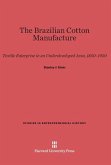The reliability and quality of suppliers' components
are inevitably two factors that impact the
performance of the supply chain.
Thus this book is divided into two parts. In the
first part, we build a model for a two echelon supply
chain system in which a single manufacturer sells his
product to a market with stochastic demand. A group
of suppliers provide essential components with
stochastic reliability for the manufacturer. We first
analyze the manufacturer's optimal ordering quantity
decision. Then we investigate the suppliers' price
competition by non-cooperative game theory.
In the second part, we model a two echelon assembly
system which faces deterministic demand affected by
the market price and product quality. In the first
stage, the firms decide on investment in the quality
of the components or the final product to stimulate
the market. After the investment, in the second
stage, each firm decides on the wholesale and market
price. We identify the existence of Nash equilibrium
in each stage through potential functions. Moreover,
we find that the investment competition with a leader
can always benefit the whole system compared with
simultaneous competition.
are inevitably two factors that impact the
performance of the supply chain.
Thus this book is divided into two parts. In the
first part, we build a model for a two echelon supply
chain system in which a single manufacturer sells his
product to a market with stochastic demand. A group
of suppliers provide essential components with
stochastic reliability for the manufacturer. We first
analyze the manufacturer's optimal ordering quantity
decision. Then we investigate the suppliers' price
competition by non-cooperative game theory.
In the second part, we model a two echelon assembly
system which faces deterministic demand affected by
the market price and product quality. In the first
stage, the firms decide on investment in the quality
of the components or the final product to stimulate
the market. After the investment, in the second
stage, each firm decides on the wholesale and market
price. We identify the existence of Nash equilibrium
in each stage through potential functions. Moreover,
we find that the investment competition with a leader
can always benefit the whole system compared with
simultaneous competition.








